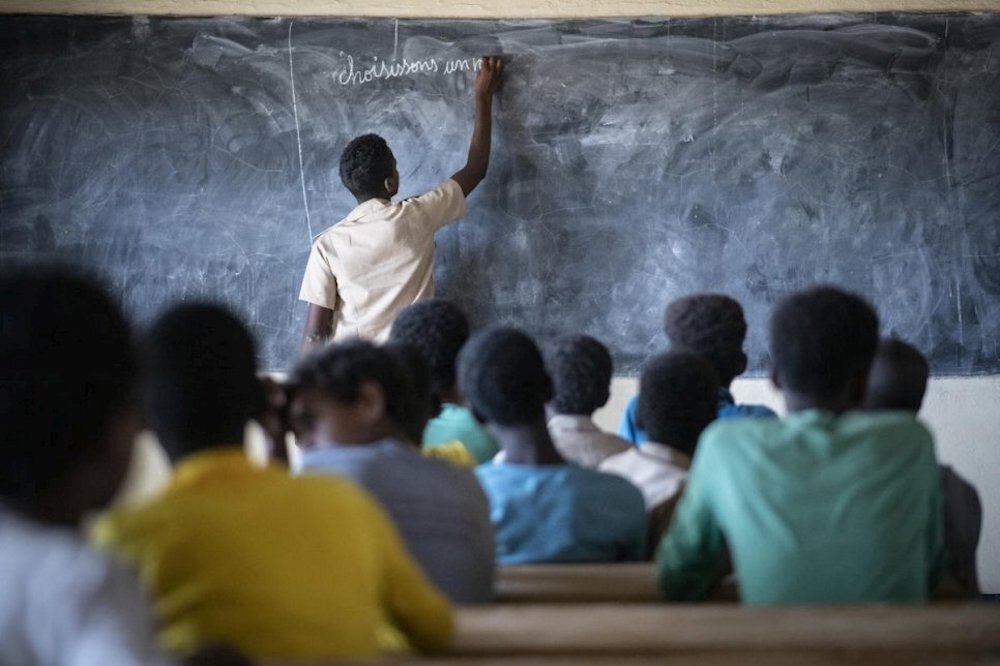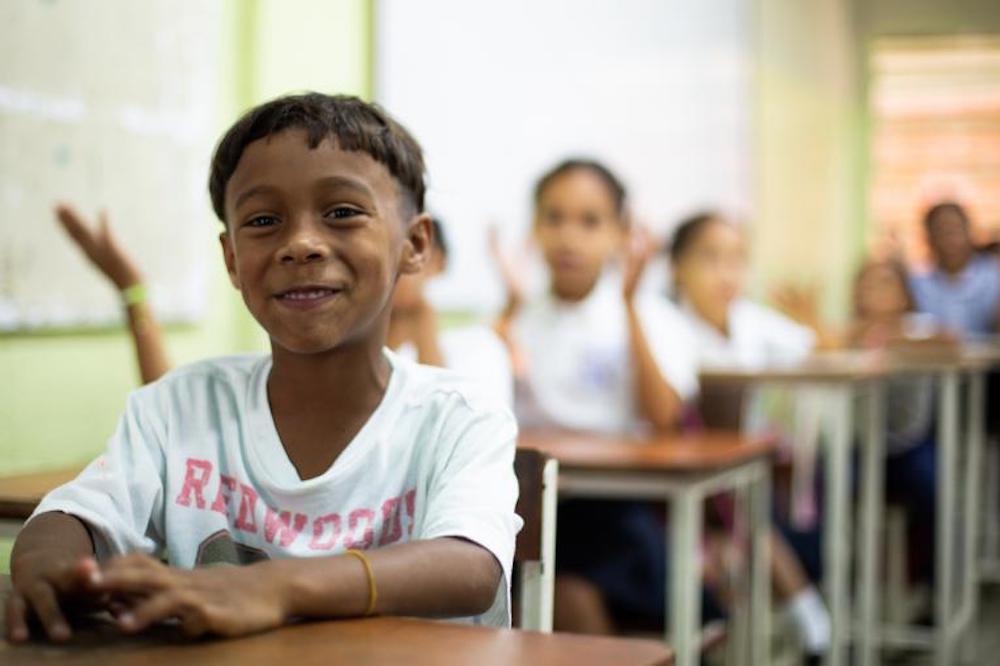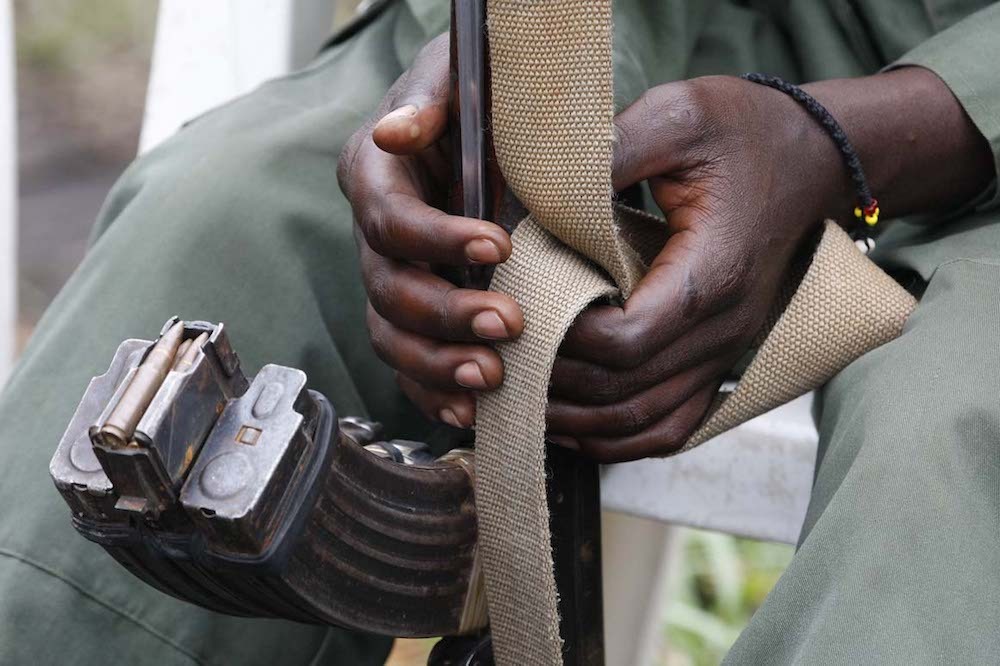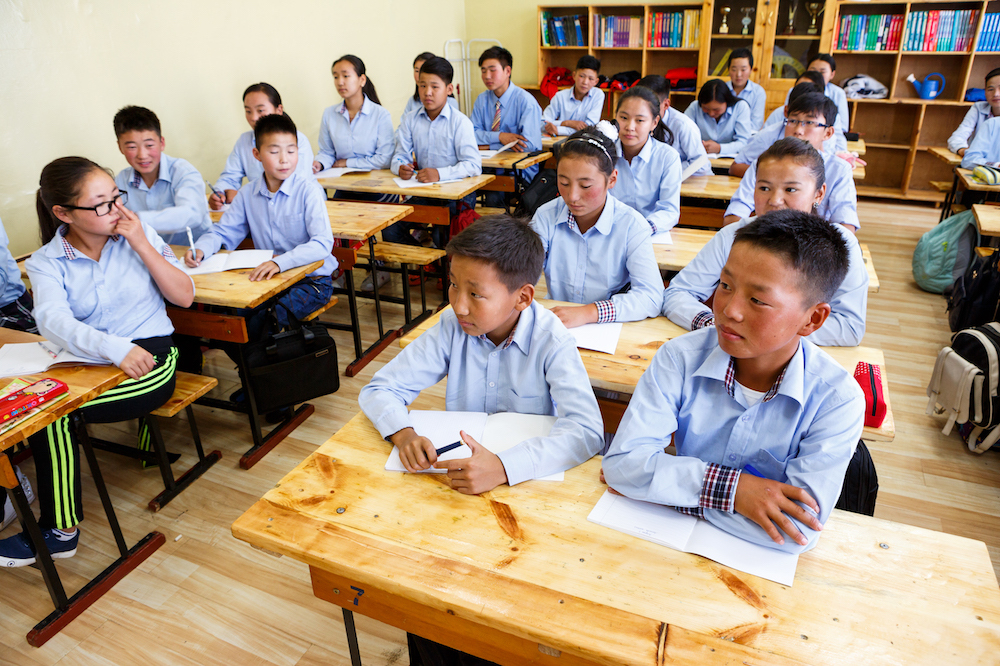
Five things you need to know this week about global education

Children in conflicts, Girls' education, Refugees and internally displaced people
Our roundup looks at the pandemic's effect on refugee children, the latest news on classes reopening around the world and a deadly attack on a primary school.
Act now or refugee children face bleak future
The future of millions of refugee children is threatened unless urgent and bold action is taken to beat the catastrophic effects of Covid-19 on their education. That warning comes in a report from the UN refugee agency UNHCR, which finds that young refugees have been particularly disadvantaged during the pandemic.
Before the health crisis, a refugee child was twice as likely to be out of school. This is set to worsen because many have been affected by school closures, difficulties affording fees, uniforms or books, lack of access to technologies or because they are working to support their families.
“Half of the world’s refugee children were already out of school,” said Filippo Grandi, UN High Commissioner for Refugees. “After everything they have endured, we cannot rob them of their futures by denying them an education today.”
No extra time. No overtime. Just right now.
When refugee kids left school because of COVID-19, they risked never being in a classroom again.
UNHCR and @VodafoneFdn Instant Network Schools Ambassador @MoSalah on the impact and what we can do: https://t.co/Dkcb2zIXwI pic.twitter.com/fXpbWXtLv0
— UNHCR, the UN Refugee Agency (@Refugees) September 3, 2020
The report – Coming Together for Refugee Education – uses 2019 data from 12 countries hosting more than half of the world’s refugee children. While there is 77% gross enrolment in primary school, only 31% of youth are enrolled in secondary school.
Mohamed Salah, the Liverpool footballer and UNHCR Ambassador, said: “Unless everyone plays their part, generations of children – millions of them in some of the world’s poorest regions – will face a bleak future. But if we work as a team, as one, we can give them the chance they deserve to have a dignified future. Let’s not miss this opportunity.”
Meanwhile, UNHCR said more unaccompanied children have been relocated from overcrowded camps in Greece to other countries in Europe. Another 49 have moved to France, meaning 207 children have now been relocated since April – with plans to move a total of 1,600.
Latest news as more schools reopen

More schools are set to open this week including New York City public schools (UNICEF / Prieto)
Tens of millions of students returned to school in countries around the world this week. Here’s a roundup of some of the latest reopenings and measures put in place…
BACK TO SCHOOL THIS WEEK
England and Wales: All years are back full-time for the new school year. Most schools are splitting classes into small “bubbles”, with each group keeping a safe distance from others. France: Students over 11 must wear face masks at all times. Primary schools can split classes into groups of 8 to 15 pupils who alternate between half-days in class and learning from home.
Russia: Schools have reopened in Moscow and teachers have to wear masks, as the city has been harder hit by the virus than other parts. China: Wuhan – Ground Zero for the pandemic and the Chinese city hardest hit by the coronavirus – has reopened all schools and kindergartens.
Jordan: Nearly two million children returned to school, although authorities were forced to suspend teaching in some areas due to a spike in Covid-19 cases. India: More than two million masked students took exams for admission to medical and engineering schools.
PLANNING TO REOPEN SCHOOLS
Spain: Primary and secondary schools start the academic year across the regions in the first three weeks of September. Face masks must be worn by children six and over and students must wash their hands at least five times a day. Greece: Reopening has been delayed by a week to September 14. Students and teachers must wear masks at all times.
Italy: Schools in most regions are set to reopen on September 14. Masks will be mandatory. Zimbabwe. Primaries and secondaries will open for students preparing to sit their final exams from September 14. Nigeria. Schools will reopen in Africa’s most populated Lagos on September 21.
United States. New York City public schools, the largest US school system, will delay the start of classes to September 21 under an agreement with education unions that had pushed for additional safety measures.
Students killed, teachers kidnapped in Congo

Gunmen in Congo attacked a school (Steve Evans)
At least two students and a teacher were killed and several other teachers kidnapped after a primary school holding exams was attacked by gunmen in Congo, officials said.
President Felix Tshisekedi said two students died when fighting broke out in North Kivu province late last week. He did not give further details.
An administrator for Masisi territory said Ngoyi Primary School was attacked. He said one teacher died and several were kidnapped.
UNICEF said in a statement there were clashes between law enforcement and an armed group close to the exam centre. It was not clear whether the students were targets of the fighting or caught in cross-fire.
Campaign to 'keep girls in the picture'
A campaign has been launched by UNESCO and members of the Global Education Coalition’s Gender Flagship to focus on “keeping girls in the picture”.
#LearningNeverStops calls for efforts to safeguard progress made on girls’ education, ensure girls’ learning continuity during school closures and promote their safe return to school when they reopen.
It also sheds light on the 130 million girls who were already out of school before the pandemic and calls on the international community to urgently work together to guarantee their right to education.
Theirworld is a member of the Global Education Coalition, which was launched to facilitate inclusive learning opportunities for children and youth during this period of sudden and unprecedented educational disruption.
Mongolians protest over school language ban

There are plans to remove the Mongolian language from parts of the curriculum (UN Photo)
Ethnic Mongolians in China’s north have staged rare protests over changes to school curriculums that remove Mongolian language from core subjects.
New guidelines in the Chinese-administered Inner Mongolia region require elementary and secondary school subjects including history, politics and language to be taught in Mandarin from this month.
Videos circulated by New York-based advocacy group the Southern Mongolian Human Rights Information Center show angry crowds of students and parents gathering outside schools to protest the move.
“Most of us have lost the ability to speak proper Mongolian, but Inner Mongolians have kept that tradition intact. I am here to show solidarity with my southern brethren,” said philosophy teacher Tseren Tuvshinjargal.
More news

